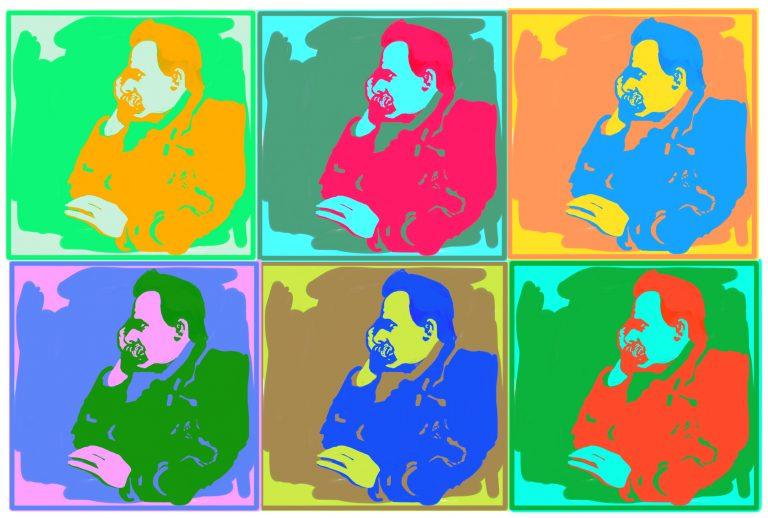Can re-reading Friedrich Nietzsche shed light on our troubled times? A new reading group organized by the Paris Center and the Columbia MA in History and Literature thinks so.
Running in parallel with the Columbia Center for Contemporary Critical Thought’s (CCCCT) Nietzsche 13/13 seminar, the reading group will consider currents of thought that arose in the wake of the Nietzschean wave and that swell in social movements like Occupy Wall Street and even in the surprising rise of non-conformist candidates on the political scene in the U.S. and abroad.
Nietzsche 13/13 follows on the heels of last year’s Foucault 13/13 seminars, spearheaded by law professor Bernard Harcourt and Jésus Velasco from Department of Latin American and Iberia Cultures. The New York seminar will explore the influence of Nietzsche’s work on a number of philosophers and critical thinkers in the twentieth century, trying to “map” the tradition of criticism that has emerged and is still developing out of encounters with the writings of the most elusive Master of Suspicion.
Each of the thirteen sessions will frame the Paris reading group’s discussions. Led by philosophy professors Daniele Lorenzini (Columbia University; University of Paris 1/CNRS) and Florent Jakob (Université de Lorraine; Collège International de Philosophie; Paris II) the reading group will devote each session to putting Nietzsche’s texts in dialogue with one of his readers, including: Martin Heidegger, Georges Bataille, Maurice Blanchot, Gilles Deleuze, Hannah Arendt, Aimé Césaire, Sarah Kofman, Frantz Fanon, Michel Foucault, Luce Irigaray, Jacques Derrida, Hélène Cixous, and Ali Shariati.
Students are encouraged to participate in the Nietzsche 13/13 blog by posting reflections on and reactions to the texts. This interactive component links the on-campus seminar and the reading group, creating a virtual space in which the conversation can continue.
The idea of linking the seminar with a reading group grew out of a desire to create collaboration between the Columbia campus and the academic community in Paris. The Paris Center acts as a conduit in this endeavor by bringing the two groups into dialogue in a space where they can share methodologies and critical analyses. The Center is using the experience to create a new paradigm for cross-cultural and cross-institutional collaboration. There are roughly 20 regular attendees of the Paris reading group including students from Columbia’s MA program in History and Literature, French students from ENS, graduate students from various Parisian universities, and a handful of local professors and other professionals. In December and January, Bernard Harcourt and Jesus Velasco will bring the “main” seminars to Paris. On Dec 15th, Bachir Diagne (Columbia Department of French and Romance Philology); Romuald Fonkoua (Université Paris-Sorbonne) and Françoise Vergès (Chair “Global South(s)” at the Collège d’études mondiales, Fondation Maison des sciences de l’homme) will conduct the session on Aimé Césaire. Then, on January 5th, the Paris Center will host a day-long conference devoted to Sarah Kofman, gathering American and European scholars including Danielle Cohen-Levinas, Elsa Dorlin, Mathieu Frackowiak, Geneviève Fraisse, Daniele Lorenzini, Mara Montanaro, Monique Schneider, and Laure Adler.
